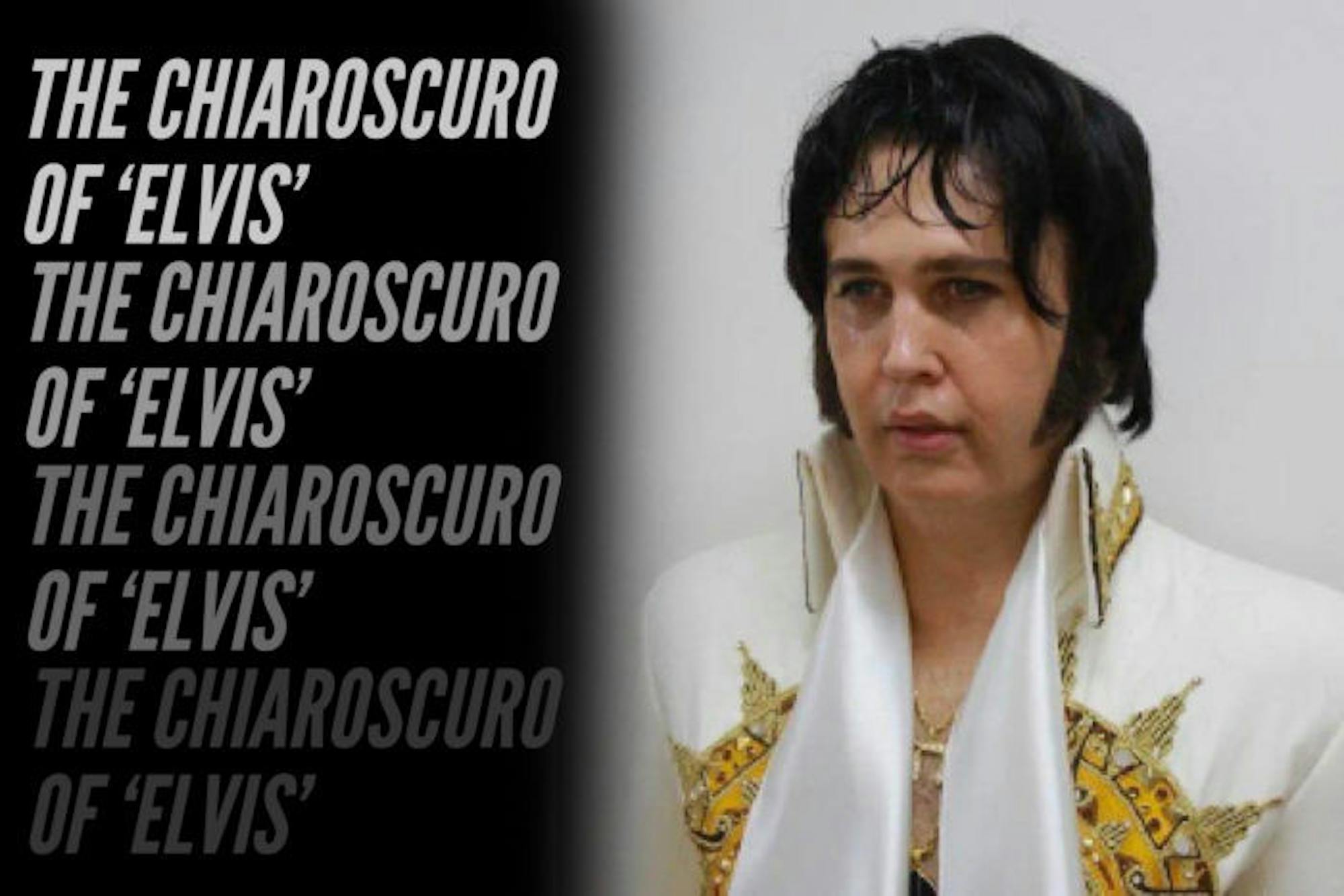
The world of Baz Luhrmann’s “Elvis” is, curiously, often painted with dimmed colors. Yes, when the King of Rock inevitably enters Vegas, there is the expected bombast, but most of this world is gray, such as Elvis’ large concert completing the first two stages of his career, where the show appears smokey and the lights in the stadium are bright and piercing. The cinematography is a fitting analogue for the film’s portrait of Elvis: an exploited boy who’s suffering the lights of fame, obscured. Yet the film’s fixation on Elvis’ biographical arc limits its presentation of — and the audience’s connection with — the star.
The greatest aspect of this film is its cast’s incredible and immersive performances. Austin Butler’s brooding portrayal of Elvis is magnificent, with every age and mood feeling true to the character. When Elvis is emotionally distant, Butler and director Luhrmann convey the turmoil within the star, and when the King of Rock does return to earth in his lowest moments, Butler captures a wide range of grief for the different sorts of loss Elvis faces. The reversion to childhood Elvis displays when his mother dies is as natural to him as his weeping when his wife leaves him — accepting the guilt for his marriage’s collapse while simultaneously mourning it. This is a magnum opus of a performance that earns all its public praise.
While Butler is the clear superstar in this film, his castmates also deliver shining performances. Helen Thomson and Olivia DeJonge play the most important women in Elvis’ life — his mother Gladys and wife Priscilla, respectively — both with comparable understatement. Thomson’s naturalistic performance builds an immediate connection between the audience and Gladys that heightens the film’s foreboding feeling as Gladys loses touch with Elvis. DeJonge works quietly and subtly to capture Priscilla and her helplessness as Elvis implodes, with this lack of power evocative of mid-century America’s reductive view of women. But the most gripping performance in the film belongs to Tom Hanks’ nasty Colonel Tom Parker, a parasite of a man leeching off Elvis, whose business affairs the Colonel controls. While the Colonel acts as a fantastic embodiment of the abuse often found in the entertainment business, there is another dimension to him that Hanks powerfully explores. The Colonel is a man with no legal or human identity, and his enslavement of Elvis allows the former to live vicariously through the latter. Yet the Colonel clearly cares for Elvis in some way, which only adds to the complexity and emotional resonance of this relationship that, more than any other element of the movie, burrows into the mind of the audience.
Where “Elvis” is less effective is in its pacing and portrayal of Presley’s artistry. The film speeds through most of his career before slamming the breaks during the Vegas years, and while this conveys the stasis and captivity he must have felt during his residency there, it yields a frustrating inconsistency in the story’s tempo. This could have been addressed by trading time in Vegas for more exploration of his art. While there are concert scenes, music sits secondary to his celebrity life, and when he goes to Hollywood, the Colonel narrates what Elvis’ movies were like rather than the film presenting the audience with those movies itself. “Elvis” has marketed itself as fully representative of Presley, yet Luhrmann does not prioritize conveying the experience Elvis’ audience had with his art that propelled him to superstardom. If the audience better understands the ecstasy and escape that Elvis and other early rock artists gave to other generations — if they more fully see their light — then when the film reveals the dark reality of Elvis’ life, they will be more horrified and moved by the fate of the star.
As a film about the titular celebrity, “Elvis” is powerfully captured, with exceptional actors constructing Presley’s decadent world. That world, however, cannot be fully understood without the light of his artistry, to which the film gives too little attention.
Title: “Elvis”
Director: Baz Luhrmann
Starring: Austin Butler, Tom Hanks
If you like: “Romeo + Juliet,” “The Great Gatsby”
Shamrocks: 4 out of 5













